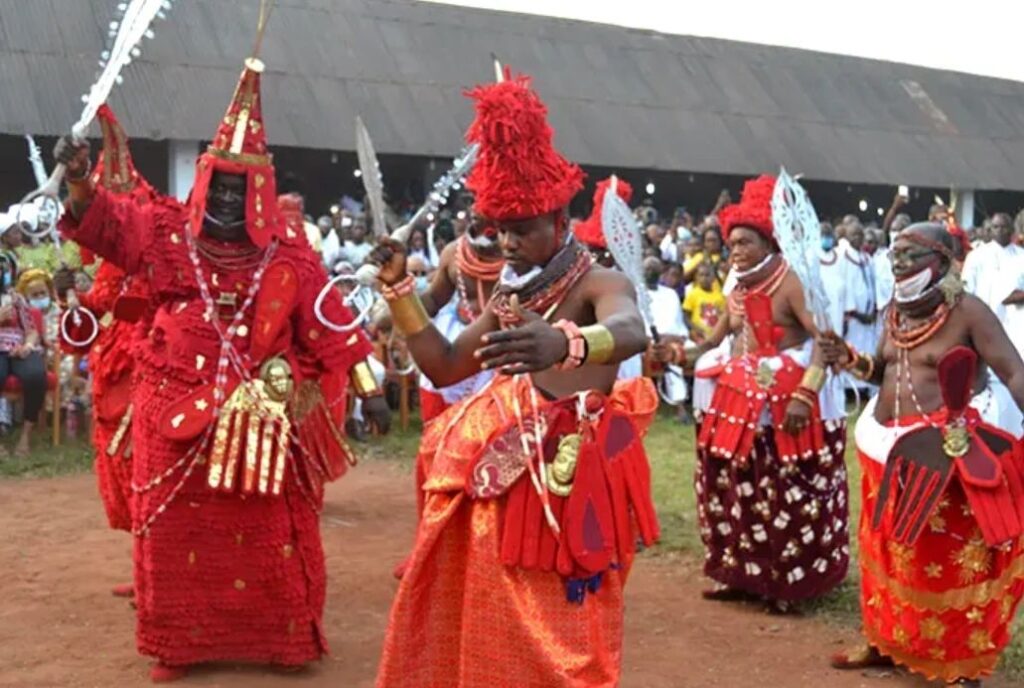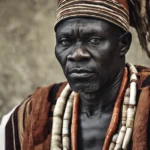The Igue Festival, an annual celebration held in the Benin Kingdom in Nigeria, stands as one of the most significant and vibrant cultural events in West Africa. Steeped in centuries-old traditions, this festival is not only a display of rich heritage but also a time for spiritual renewal, thanksgiving, and the reinforcement of communal bonds.
Historical Roots and Cultural Significance
The Igue Festival traces its origins back to the reign of Oba Ewuare I in the 15th century. According to historical accounts, Oba Ewuare I instituted the festival to commemorate his coronation and to offer thanksgiving to the gods for the peace and prosperity of the kingdom. Over time, Igue has evolved into a multifaceted celebration encompassing various rituals and ceremonies aimed at purifying the land, fortifying the king, and ensuring a bountiful year ahead.
The Role of the Oba
At the heart of the Igue Festival is the Oba of Benin, the spiritual and political leader of the Benin Kingdom. The Oba’s participation is crucial, as the festival is partly centered around the renewal of his spiritual power. The Oba performs several key rituals, including the anointing of his head (Igue Ivbioba) and the blessing of the royal family and subjects. These rites are believed to imbue the Oba with renewed vigor to lead the kingdom in the coming year.
Key Rituals and Ceremonies
The Igue Festival is marked by a series of elaborate rituals and ceremonies that span several days:
- Ugie Ewere: This ceremony involves the presentation of Ewere leaves, symbolic of joy and prosperity, to the Oba. It is a time of jubilation, music, and dance, signifying the collective wish for a prosperous year.
- Igue Ivbioba: A deeply spiritual ritual, this involves the Oba anointing his head with special oils and performing sacred rites to renew his divine mandate. This act is believed to cleanse and purify the Oba, ensuring his well-being and continued protection over the kingdom.
- Igue Edohia: This ritual is focused on the purification of the land. Priests and elders perform various rites to cleanse the kingdom of any negative forces, ensuring peace and harmony for the community.
- Ugie Ivie: During this ceremony, chiefs and prominent families display their wealth and pay homage to the Oba. The ritual underscores the social hierarchy and the unity of the kingdom under the Oba’s leadership.
Music, Dance, and Festivity
The Igue Festival is not only a spiritual affair but also a vibrant display of Benin culture. Traditional music and dance play a significant role, with performances by royal drummers, singers, and dancers adding to the festive atmosphere. The streets of Benin City come alive with colorful parades, masquerades, and communal feasts, fostering a spirit of unity and celebration among the people.
Contemporary Relevance
In modern times, the Igue Festival has transcended its traditional roots to become a symbol of Benin identity and pride. It attracts not only the indigenes of Benin but also tourists and cultural enthusiasts from around the world. The festival serves as a platform for showcasing the rich cultural heritage of the Benin Kingdom, promoting cultural tourism, and fostering a deeper understanding of African traditions.
Conclusion
The Igue Festival of the Benin Kingdom is more than just a cultural event; it is a profound expression of spirituality, community, and continuity. Through its elaborate rituals and joyous celebrations, the festival reinforces the cultural fabric of the Benin people, preserving their history and traditions for future generations. As the Igue Festival continues to evolve, it remains a testament to the enduring legacy of the Benin Kingdom and its vibrant cultural heritage.


